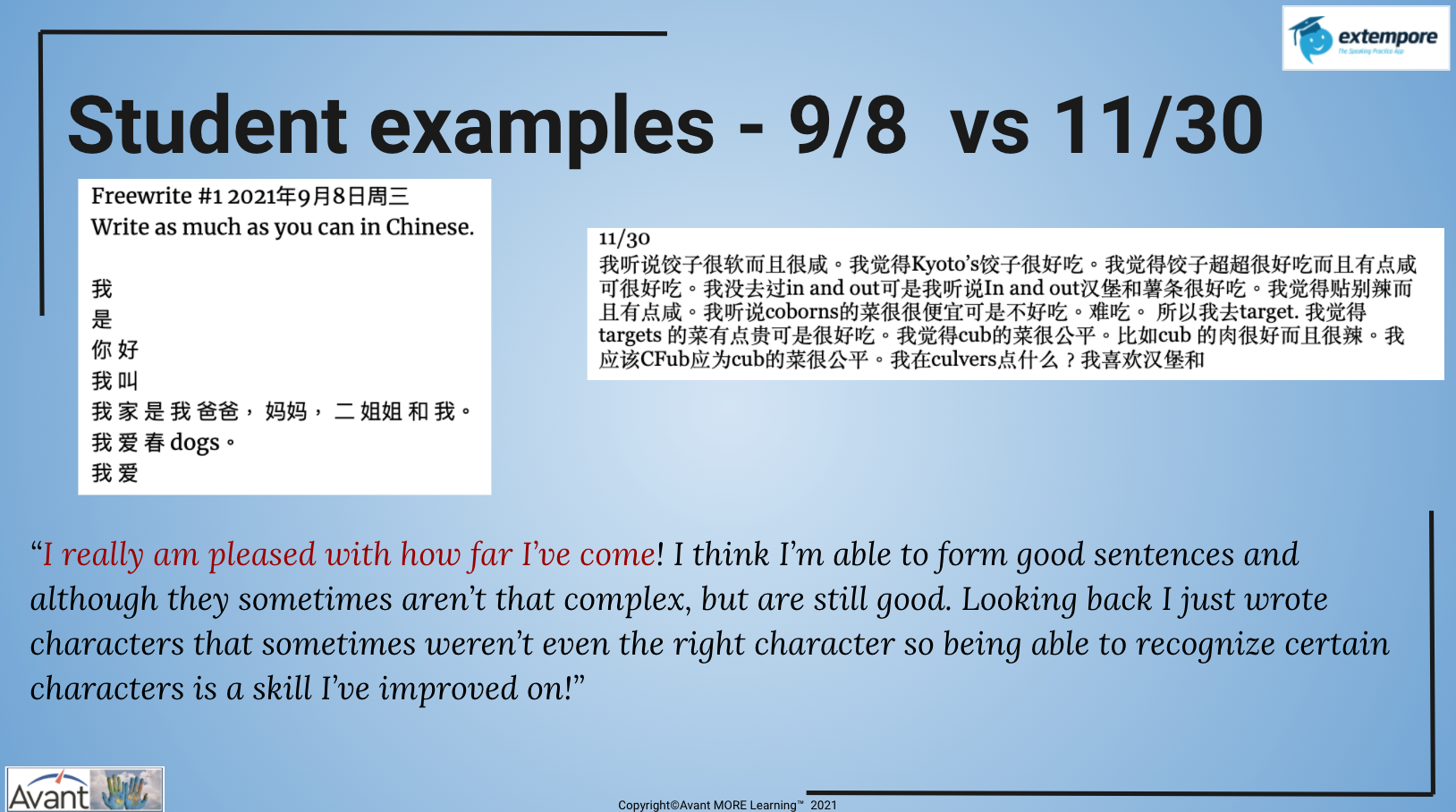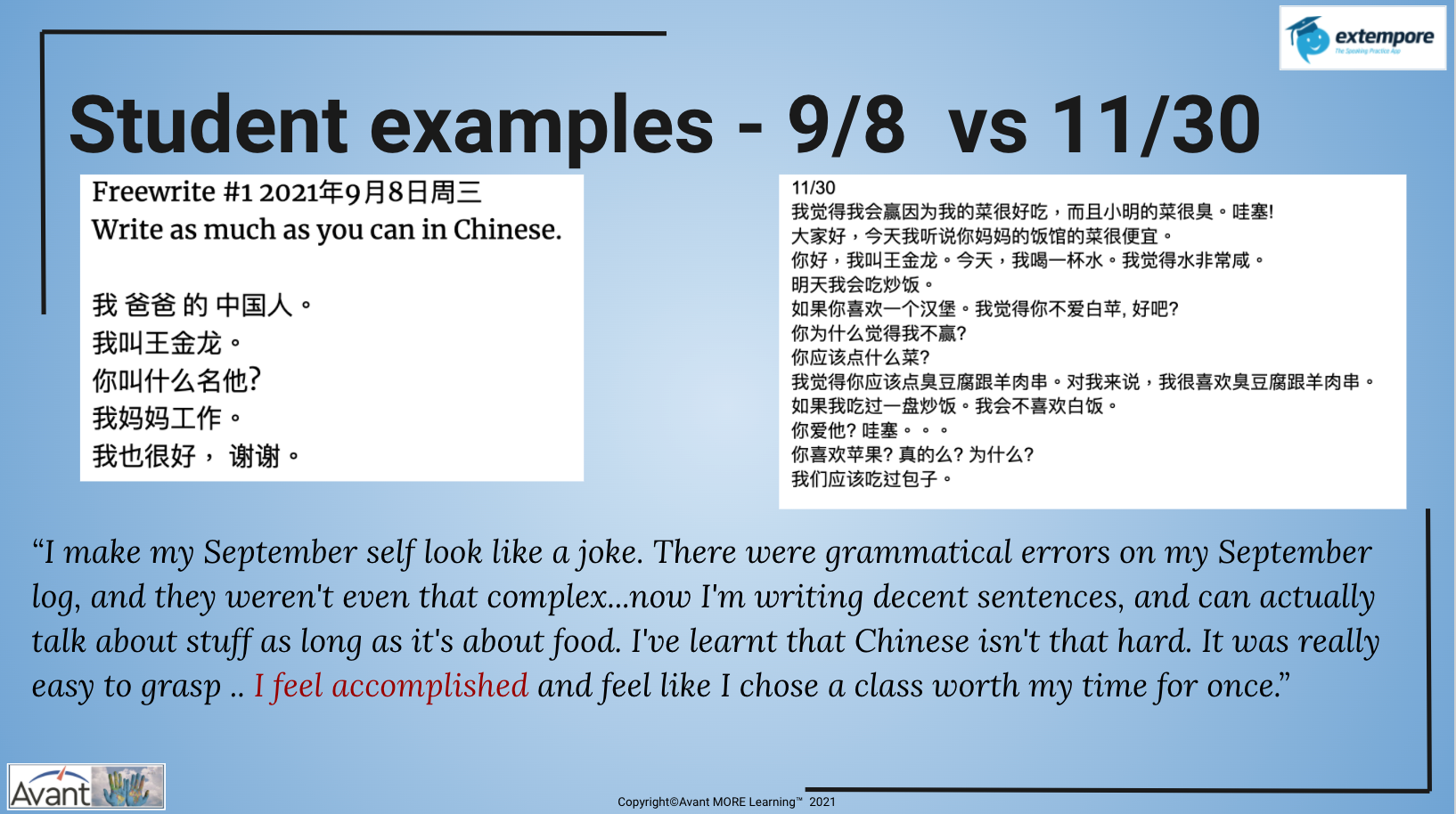
This blog is a supplemental resource to pair with our recent webinar, “Practical Proficiency in a Pandemic: Now What?” which can be viewed in its entirety below.
Background
The idea behind this webinar, and subsequently this blog, came from numerous discussions between myself and the lovely Dawn Samples of Avant Assessment. Trying to come up with an idea for a joint webinar, we wanted something that would relate to teachers and wouldn’t just parrot the dozens of cliches that teachers have heard in the past year and half. We knew the common sentiment among teachers: this was the hardest year they have ever experienced. Coming up with a webinar, Dawn and I realized, just like with students this year, we had to be practical, and so the webinar was born.
A lot of this discussion came down to what teachers can actually do right now, during a pandemic, and following a year of online and hybrid learning.
We knew the common sentiment among teachers: this was the hardest year they have ever experienced.
The 2021-2022 School Year: The Hardest Ever
Before talking this out with Dawn, it had never really occurred to me why this year has been so hard; I had been too engrossed with school to even consider the reasons behind the struggle. Of course there are obvious factors: COVID-19, the transition from hybrid to fully in-person learning, and my students adapting to me, their new teacher.
When language teachers meet a new group of students, it’s imperative to grasp their current level. What is the baseline? Where do I meet these students to begin learning? So much of what we discussed in the webinar related to “Where do we go from here?” It turns out though, that if you can’t find where here is, or if each student’s here is wildly different, it makes teaching incredibly difficult. And that’s where so much of the frustration, anxiety, and helplessness that have plagued teachers this year originates. Students, at no fault of their own, possess language levels that do not match the course they are enrolled in.
Upon discovering this, we look at the class and think, now what? Where do I go from here? Well, by taking a modified backwards design approach, we can 1) find our starting point, and 2) create a plan going forward.
Where are we as a class?
This is the most important step. To ascertain our starting point, there needs to be a baseline assessment, something that provides evidence of our students' current language levels.
The easiest and cleanest form of a baseline assessment in language teaching, for me, is a freewrite. I simply tell students, "take 10 minutes and write as much as you can in Chinese." The crucial part of composing freewrites, however, is that students have no access to any resources for help. They are simply writing what they know, using the language they have acquired.
Once I see the results, I have a pretty good sense of students' language levels.
Where do I want to go? What’s practical?
With a clearer picture of student levels, it's much easier to look forward to what we want students to learn. Still, it's important to be practical here. We can't teach the same lessons we've always taught and just go through the motions, assuming that nothing has changed. Instead, this is where we meet students where they are, adjusting learning targets and pacing expectations accordingly. From here, you'll likely answer two more questions:
What skills do students need to master in order to reach this objective
What skills require enrichment or supplemental practice?
We can't teach the same lessons we've always taught and just go through the motions, assuming that nothing has changed.
Past and Recent Successes With Freewrites


Seeing my students' progress from first freewrite (September 9th) to second freewrite (November 30th) was enough to satisfy me, but there's something about my students' genuine reflections that serves as that second little victory. Knowing that students have grown in confidence and feel more prepared for what's to come is a gentle reminder of why we maintain the passion for this demanding, sometimes relentless vocation.
In this sense, there are victories for everyone. Students (literally) see and feel their progress, and through reflection they can internalize this feeling of accomplishment and linguistic growth. On the other hand, teachers can feel proud for their students, while also taking pride in seeing the fruits of hours of planning, teaching, and assessing.
One other thing to point out with these freewrites: no, their grammar is not perfect (sometimes still making novice mistakes), and there are plenty of sentences with improper word order, but that's okay. As we know, fluency and proficiency develop over time, and this process will greatly differ for each student. Simply seeing the increase in overall production is usually enough (in my experience) to keep students pushing forward, particularly at the lower proficiency levels.
Freewrites, then, are a way for each student to see his/her own growth with no need to compare to anyone else's.
Freewrites, then, are a way for each student to see his/her own growth with no need to compare to anyone else's, making this student-centered assessment essential for any language course. Paired with reflections, freewrites allow students to measure linguistic growth while also engaging in metacognition and self-assessment of their own strengths and weaknesses.
Teaching is hard. Teaching in a pandemic.....well, we know how hard it's been. Taking a practical approach to our classes allows us to stay grounded and realistic about class outcomes and expectations. Hosting freewrites throughout the year on Extempore are one of my favorite ways to keep proficiency practical, for both myself and my students.
